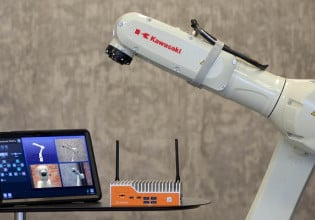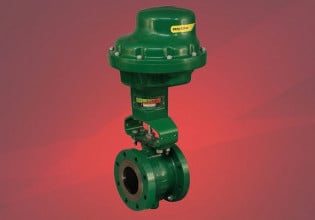Researchers in Lithuania Debut New AI-based Method for Detecting Mechanical Failures in Industrial Systems
Sound, specifically vibrations, have been used to detect potential mechanical failures. However, this study aims to combine sound and deep learning to optimize predictive maintenance.
Kaunas University of Technology (KTU)
Kaunas University of Technology (KTU) is a Lithuanian University with degree programs in engineering, technology, physical sciences, social sciences, and the humanities and arts. The university has worked to create an environment where students can learn cutting-edge technology in real-world applications.
KTU has recently started researching the possibility of using artificial intelligence to determine problems within automated mechanical systems. Major manufacturers lose over 1 trillion dollars every year due to mechanical failure in their manufacturing lines.
The technology hopes to find inevitable problems before they occur using an advanced hearing system. The system can hear smaller mechanical issues before they become large enough to shut systems down.

Ultrasonic level measurement is one way of measuring sound.
Catching mechanical wear and fatigue before it becomes total system failure could significantly save companies on downtime costs. It will also give companies more warning and allow them to plan for downtime instead of dealing with unexpected system failures.
Artificial Intelligence for Mechanical Systems
There are still many factories around the globe that rely on mechanical automation. These older, more mechanical systems often do not contain the same amount of sensors as more modern systems that rely on digital sensing for operation.
A lack of digital information can make system failures difficult to detect until they become large enough to shut systems down.
According to KTU researcher Rytis Maskeliūnas, the co-author of the invention, “the sound data is easy to collect because of the relatively low installation cost of contactless microphones to existing facilities, sound data-based methods are of great interest.”

Rytis Maskeliūnas, Kaunas University of Technology, Faculty of Informatics researcher. Image used courtesy of KTU
Sound within the factory setting offers a promising route for understanding and predicting mechanical failure without adding sensors. Traditional sound monitoring systems often have difficulty distinguishing between all of the different noises within the factory environment.
To overcome this problem, KTU looked for alternative methods of analyzing monitored sound data. Software and multimedia engineers from the university thought of using a deep machine learning method for analyzing sounds from the machinery.
According to Maskeliūnas, failure detection is based on training algorithms with real-life sound data within real industrial machinery sound information.
KTU hopes to create a system capable of:
- avoiding unnecessary equipment replacement
- reducing maintenance costs
- improving work safety
- increasing equipment availability
- maintaining acceptable levels of performance.
The researchers hope to further develop the technology by partnering with manufacturers to gain access to more real-life data. The team hopes to create an inexpensive system that predicts mechanical failures in countries without the resources to upgrade mechanical manufacturing methods.
The project aims to help older factories become more efficient and create a system for machine monitoring that doesn't require expensive digitalization and unnecessary addition of sensors.






